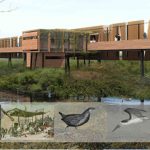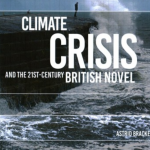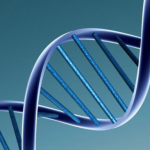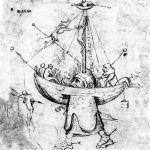critical ecologies
Toward a Particulate Politics: Visibility and Scale in a Time of Slow Violence

Smaller than anything the human eye can see, yet not so small as the elementary waves and dark matter known to modern science: the particle is an appropriate figure for our present, intermedial ¨shuttling between entities at different scales.¨
Amphibia: Infrastructure of the Incomplete

A slightly different version of this work originally appeared as part of a longer article, "The Architectural History of Disappearance: Rebuilding Memory Sites in the Southern Cone," in the December 2014 issue of the Journal of the Society of Architectural Historians. I am grateful to the University of California Press for permission to reproduce portions of that work here.
Parallel and Soft Representations of Climate Change: A Review of Astrid Bracke’s Climate Crisis and the 21st Century British Novel

Elizabeth Callaway reviews Astrid Bracke's Climate Crisis and the 21st Century British Novel, which she uses as a jumping off point to explore the possibilities of a "soft" representation of climate in realist literary fiction, in particular Zadie Smith's NW.
Lynn Margulis and the (Re)Making of the Planet

With Gaia theorist Lynn Margulis and posthumanist Bruce Clarke, Diana Leong argues against the fetishizing of genes and seeks an alternative to the modern synthesis of Darwinian natural selection and Mendelian inheritance. These amodern, posthumanist approaches instead offer a gradual accumulation and transmission of mutations, and a coevolutionary embeddedness within diverse environments and the socio-political structures responsible for them.
Hard Days Nights in the Anthropocene

Exploring the interaction of poetics and language with the discourse of the Anthropocene (through etymologies of various ecological ages, or notions of the “survival of the fittest” and embodiment), Retallack combines poetry and prose to occasionally suspend the essay genre into a reflective and creative endeavour, attempting to encompass the larger cultural efforts of “poets, scientists, philosophers, visual and performance artists, composers of every kind [who are] working on an interconnected project” of ecopoetics.
This reprinted essay, first published in Angela Hume and Gillian Osborne's edited collection Ecopoetics: Essays in the Field (Iowa UP, 2018), addresses the major themes of – and suggests the possibility of a vital conversation between – two forthcoming ebr gatherings: 'Essayism', edited by Jason Childs and Joseph Tabbi, and 'Natural Media', edited by Lisa Swanstrom and Eric Dean Rasmussen.
Image: Ship of Fools in Flames, c. 1450; possibly Jheronimus Bosch.